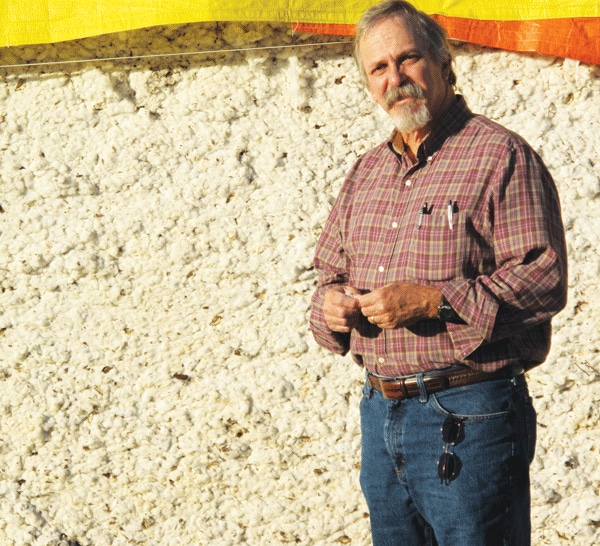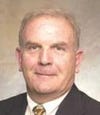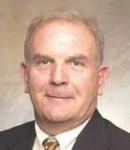
Billy McLawhorn reflects on 30 years as a North Carolina crop consultant
• With the full support of his then new wife, Martha, McLawhorn started his consulting business in 1982.• By 1985, he says, it was doing well enough that Martha came to work with him full time.• “After that it seems like personnel issues went away and we have been fortunate to work with high quality, dedicated people throughout our business life,” McLawhorn says.
February 19, 2013

After 30 years of working as a licensed agricultural consultant, Billy McLawhorn says the work is different now, but still as challenging and rewarding as the day he started.
This year, he says, after putting all his sweep nets and insect sampling tools away for the winter, he found stink bugs in a soybean field later than at any time in his 30-year career. This year it was late stink bugs, next year it will be something different, he says.
Having grown up on a diversified farm in eastern North Carolina, becoming a crop consultant may not seem like much of a jump, but that’s not quite accurate and at best only part of the reason he chose an occupation that demands he be on the cutting edge of technology in order to best advise his customers — farmers.
“As soon as I learned how to do arithmetic, my Dad started teaching me how to do enterprise budgets. I always had a fascination with planning things and following through to see how the actual event matched up with my plan,” he says.
By the time he left the family farm to attend college at North Carolina State University, McLawhorn says returning to the farm or to farming was the furthest thing from his mind. “I wanted to get as far away from those things as I could,” he laughs.
After a year or so changing college majors and losing lots of sleep wondering about his future, he says he figured out what he wanted to do, so he earned a degree in agronomy, which proved to be one of the easier steps in his professional odyssey.
After graduating from college, he returned to the farm, worked with his father some on the farm, got married, started a pick your own strawberry operation and a retail store. The getting married part, he says, was the best of those early choices, both professionally and personally.
Started business in 1982
With the full support of his then new wife, Martha, McLawhorn started his consulting business in 1982.
By 1985, he says, it was doing well enough that Martha came to work with him full time. “After that it seems like personnel issues went away and we have been fortunate to work with high quality, dedicated people throughout our business life,” he adds.
But back in 1982, figuring out how to get into the agriculture consulting business was a real challenge. “There just weren’t many full-time consultants in North Carolina back then — mostly just a few scouts, who did other things when crops weren’t in season,” he says.
When McLawhorn was finally ready to enter the business, he found out that Fate Thompson, then a professor of weed science at North Carolina State University, was starting a company he called American Agricultural Services. It was a forerunner of Crop Quest and other large, agriculture consulting companies.
It was a company set up to help crop consultants find clients and helped train them in both the production and business end of consulting.
“Each consultant paid a percentage of their fees to be an affiliate of American Ag. We wholly owned our company, but had the advantage of being affiliated with a North Carolina-based company that included such well known agriculture experts as Thompson, S.N. Hawks, and Astor Perry,” McLawhorn says.
McLawhorn was the first American Ag affiliate and after a few jumps and starts, his 30-year career in agricultural consulting was launched.
“It was strictly by chance that Fate Thompson started his company at the precise time I needed the support American Ag provided,” he adds.
The concept of a science-based agricultural consultant was all together new, but at the time McLawhorn and Goldsboro, N.C., Consultant Danny Pierce were among a very few college trained consultants in the state.
“When we were back in college, some of us thought we invented the concept, but in reality, in other parts of the country, there were a number of college-trained, licensed crop consultants,” he says.
Requirements of a consultant
In North Carolina and a handful of other states, most notably California, to be a licensed crop consultant and member of the state agriculture consulting association requires considerably more than waking up one morning and deciding you want to be a crop consultant.
For starters to be a voting member of the North Carolina Agricultural Consultants Association, a person has be an independent operator, meaning he or she cannot sell agriculture products or promote one product over another.
Members also have to have a pesticide consulting license, which requires a written examination, which requires a bachelors degree from an accredited four-year university.
In addition NCACA members must have completed two years of experience as a crop consultant. Provisional membership is available to those who lack the professional experience.
The legal and technical requirements for being a licensed crop consultant doesn’t mean much to most farmers, McLawhorn admits. Most farmers are more interested in your knowledge and how you can apply it to help them reduce risks associated with growing the crops they grow, he says.
“Both our state association and our national counterpart, the NAICC are much more valuable to consultants like him than to farmers, the North Carolina Crop Consultant says.
“Over the years we all run into issues we can’t solve, but rarely do we run across one that someone in our organization hasn’t seen and overcome. Having that professional connection for help has been one of the best parts of what I’ve done professionally for the past 30 years,” McLawhorn adds.
“Another big asset has been the quality of farmers I work with. Going back to when I started in this business, I still have 85-90 percent of the customers I started with more than 25 years ago. I learn something new from them every time I sit down to help them plan a crop or go over something I’ve found in their fields.”
“Several of my grower-clients started out with a few hundred acres or so and now farm several thousand acres. It’s that kind of growth that has allowed me and most other consultants of my generation to hire college-trained associates who can then use the experience they gain and qualify for a consulting license.
“Since I was little boy, I’ve been interested in planning crops and figuring the most efficient and cost effective ways to produce a crop. Consulting can be a rewarding career, but it can be a very demanding one, and it’s not for everyone with a college degree and an interest in agriculture,” McLawhorn says.
In the future, the challenges are likely to get bigger and bigger as technology progresses, farms get bigger and risks get higher, he says.
“As new technology comes into play and the stakes of farming get higher, the role that university research and Extension people play will be greater in the future.
“The first 30 years have been a blast, and I can’t wait to see what comes next,” McLawhorn says.
About the Author(s)
You May Also Like





